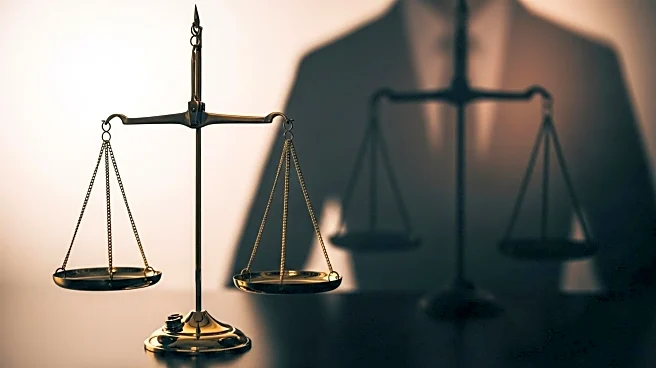What's Happening?
Former French President Nicolas Sarkozy has been sentenced to five years in prison for criminal conspiracy related to obtaining election campaign funds from the regime of the late Libyan dictator Muammar Gaddafi. Sarkozy's lawyers are working to ensure his incarceration is as brief as possible, despite his appeal against the conviction. Sarkozy, who served as president from 2007 to 2012, is the first French president to face jail time. His conviction has sparked calls for a pardon from some political allies, although French President Emmanuel Macron has not commented on the matter. Sarkozy's incarceration is expected to begin in the coming weeks, with potential adjustments such as electronic tagging being considered.
Why It's Important?
Sarkozy's conviction underscores the legal accountability of political figures, highlighting that no one is above the law. The case has significant implications for France's political landscape, potentially affecting public trust in political institutions. Sarkozy's situation may influence perceptions of political integrity and the handling of campaign finances. The case also draws parallels to other political figures who have faced legal consequences, emphasizing the importance of transparency and accountability in governance.
What's Next?
Sarkozy's appeal process will continue, and his lawyers may petition for alternative sentencing arrangements, such as electronic tagging. The political ramifications of his conviction may lead to discussions on legal reforms and the role of political figures in campaign financing. The French public and political parties will likely monitor the situation closely, with potential impacts on upcoming elections and political alliances.
Beyond the Headlines
The case raises ethical questions about the influence of foreign funds in national elections and the integrity of political campaigns. It may prompt broader discussions on international political financing and the need for stricter regulations to prevent corruption. Sarkozy's conviction could serve as a cautionary tale for political leaders globally, emphasizing the importance of ethical conduct and transparency.









